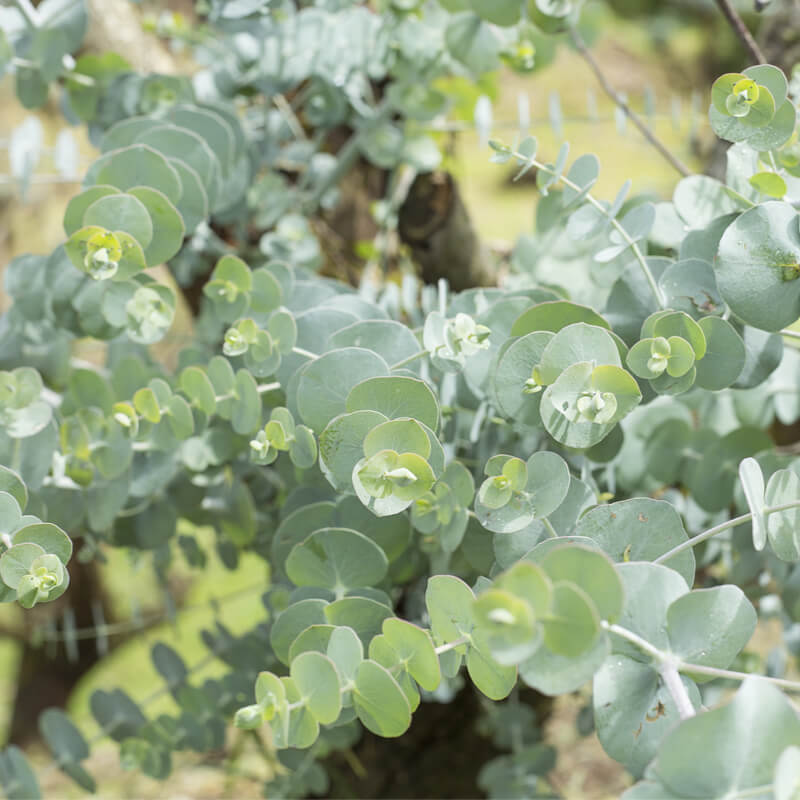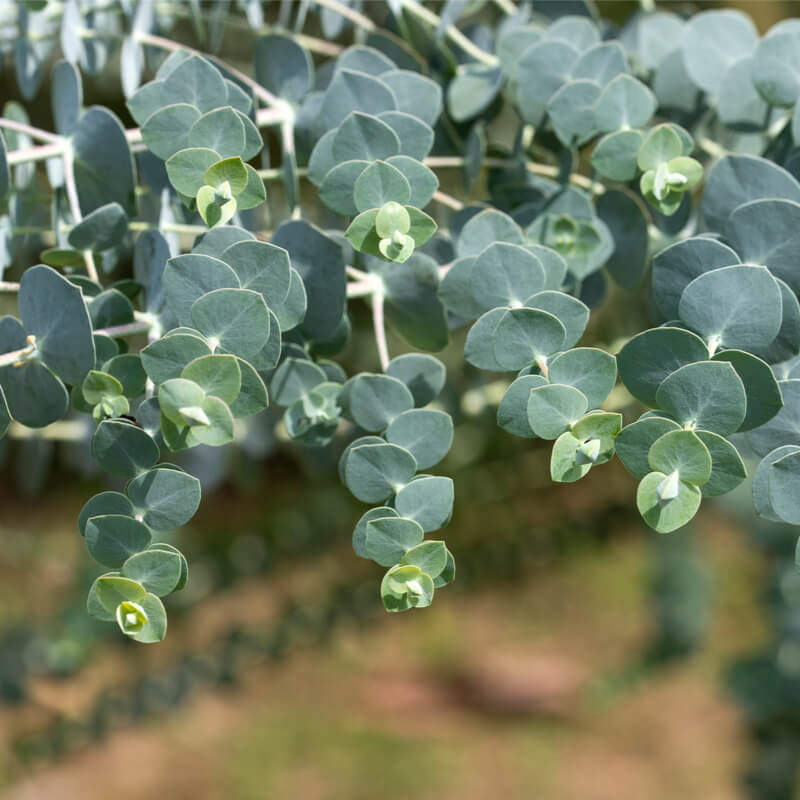Eucalyptus pulverulenta ‘Baby Blue’
£26.95
Out of stock
Description
Beautiful blue foliage most widely used in floral art. A striking, smaller, multi-branched evergreen tree. Good species for the smaller garden plot or grow in an air-pot on your terrace. One of our absolute favourite species – very versatile and with fabulous foliage: Sold in 17cm Growers Pot Description Very widely grown in Southern California, Mexico, Europe and Australasia, E ‘Baby Blue’ has long been a favourite of the cut-foliage industry with the stems being highly sought-after as freshly picked or dried for floral art. It is a naturally dwarf species, rarely exceeding 3m and can be grown as a clipped shrub. With careful pruning, this can be trained into a nicely shaped bush; left to its own devices it can be described as having an ‘interesting architecture’. This is a good variety for the smaller garden plot and could be grown in an air-pot on your terrace, but you need to follow the rules on growing Eucs. in pots. Shoots ‘n Leaves:
Bark:
Blue when young. Smooth silvery grey, sometimes with olive, gold and russet tones.Flowers:
White fluffy flowers in profusion arranged in whorls around the stems, whilst still quite a young tree in mid Winter through to early Spring.Leaf Aroma:
Very strong typical fresh menthol Eucalyptus aroma.Rate of Growth:
Slow growing at less than 1m per year.Height in maturity:
If trained as a standard tree to grow upwards, it could reach approx. 3-4 m. Responds well to regular annual pruning to keep it small either as a bushy shrub or shrub-onna-stick. If maintained as a coppiced/pollarded specimen, it will take on the size and shape of a Pittosporum Forsythia shrub or coppiced Hazel tree.Hardiness:
Tolerating down to around -10 °C to -14 °C mark, once mature. Hardiness in Eucalyptus is governed by provenance of seed, how it is grown (i.e. high nitrogen levels reduces cold tolerance), age of the tree – the older your tree, the hardier it will be. Younger Eucs are more susceptible to frost damage.Lignotuber: I
t has one, which is a good thing! E. ‘Baby Blue’ will regenerate off the lignotuber if cut down by man, beast or nature. It also produces many shoots from epicormic buds lying dormant beneath the bark higher up the tree; so E. ‘Baby Blue’ will respond extremely well to both coppicing and pollarding practices.Ecology:
?Bees: All Eucalyptus produce flowers with nectar and pollen, but this species has particularly spectacular flowers making it a real draw for honey bees looking for winter foraging.

